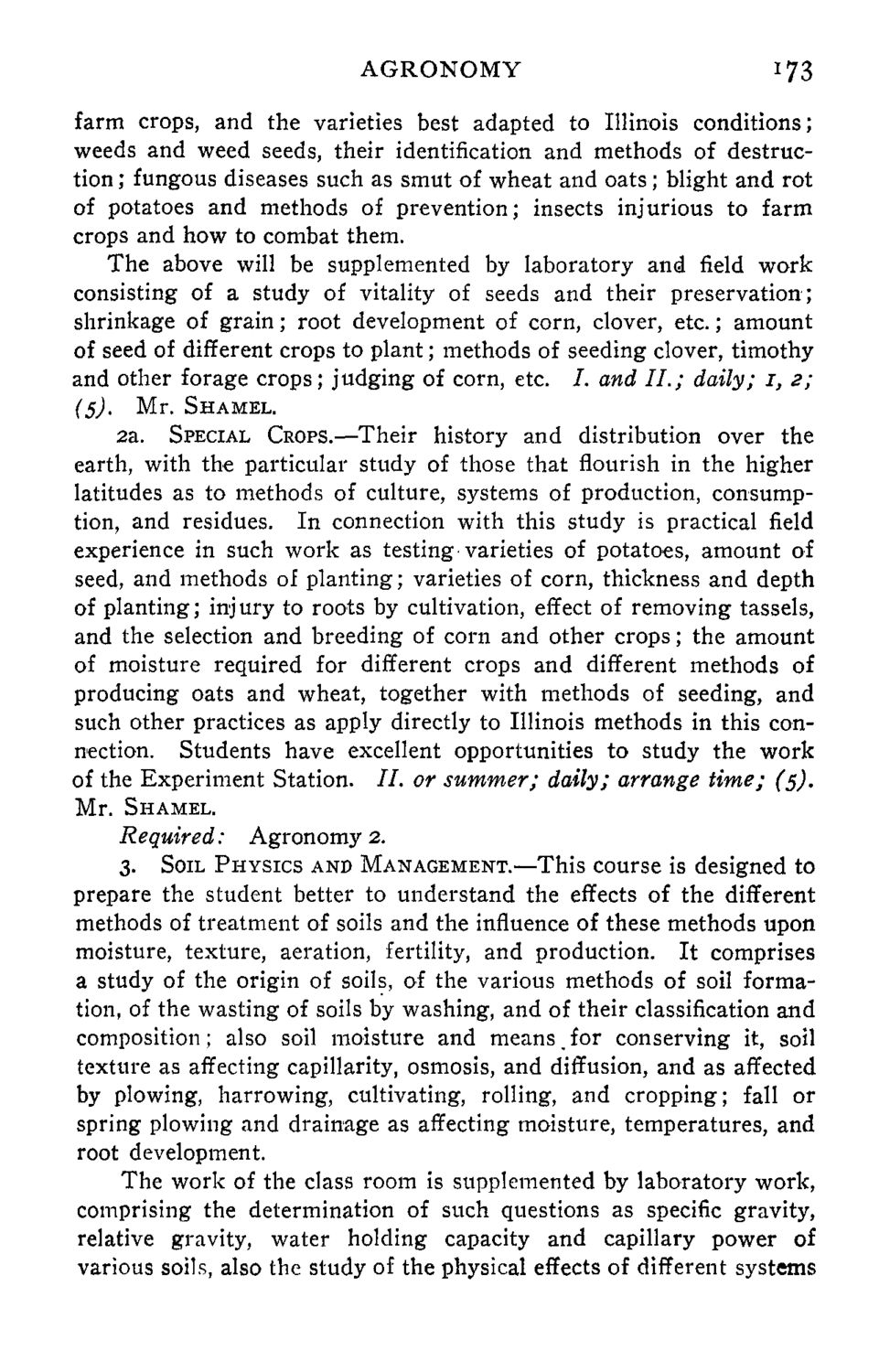| |
| |
Caption: Course Catalog - 1899-1900
This is a reduced-resolution page image for fast online browsing.

EXTRACTED TEXT FROM PAGE:
AGRONOMY 173 farm crops, and the varieties best adapted to Illinois conditions; weeds and weed seeds, their identification and methods of destruction ; fungous diseases such as smut of wheat and oats; blight and rot of potatoes and methods of prevention; insects injurious to farm crops and how to combat them. The above will be supplemented by laboratory and field work consisting of a study of vitality of seeds and their preservation; shrinkage of grain; root development of corn, clover, etc.; amount of seed of different crops to plant; methods of seeding clover, timothy and other forage crops; judging of corn, etc. /. and II.; daily; 1, z; (5). Mr. SHAMEL. 2a. SPECIAL CROPS.—Their history and distribution over the earth, with the particular study of those that flourish in the higher latitudes as to methods of culture, systems of production, consumption, and residues. In connection with this study is practical field experience in such work as testing varieties of potatoes, amount of seed, and methods of planting; varieties of corn, thickness and depth of planting; injury to roots by cultivation, effect of removing tassels, and the selection and breeding of corn and other crops; the amount of moisture required for different crops and different methods of producing oats and wheat, together with methods of seeding, and such other practices as apply directly to Illinois methods in this connection. Students have excellent opportunities to study the work of the Experiment Station. / / . or summer; daily; arrange time; (5). Mr. SHAMEL. Required: 3. Agronomy 2. SOIL PHYSICS AND MANAGEMENT.—This course is designed to prepare the student better to understand the effects of the different methods of treatment of soils and the influence of these methods upon moisture, texture, aeration, fertility, and production. It comprises a study of the origin of soils, of the various methods of soil formation, of the wasting of soils by washing, and of their classification and composition; also soil moisture and means.for conserving it, soil texture as affecting capillarity, osmosis, and diffusion, and as affected by plowing, harrowing, cultivating, rolling, and cropping; fall or spring plowing and drainage as affecting moisture, temperatures, and root development. The work of the class room is supplemented by laboratory work, comprising the determination of such questions as specific gravity, relative gravity, water holding capacity and capillary power of various soils, also the study of the physical effects of different systems
| |